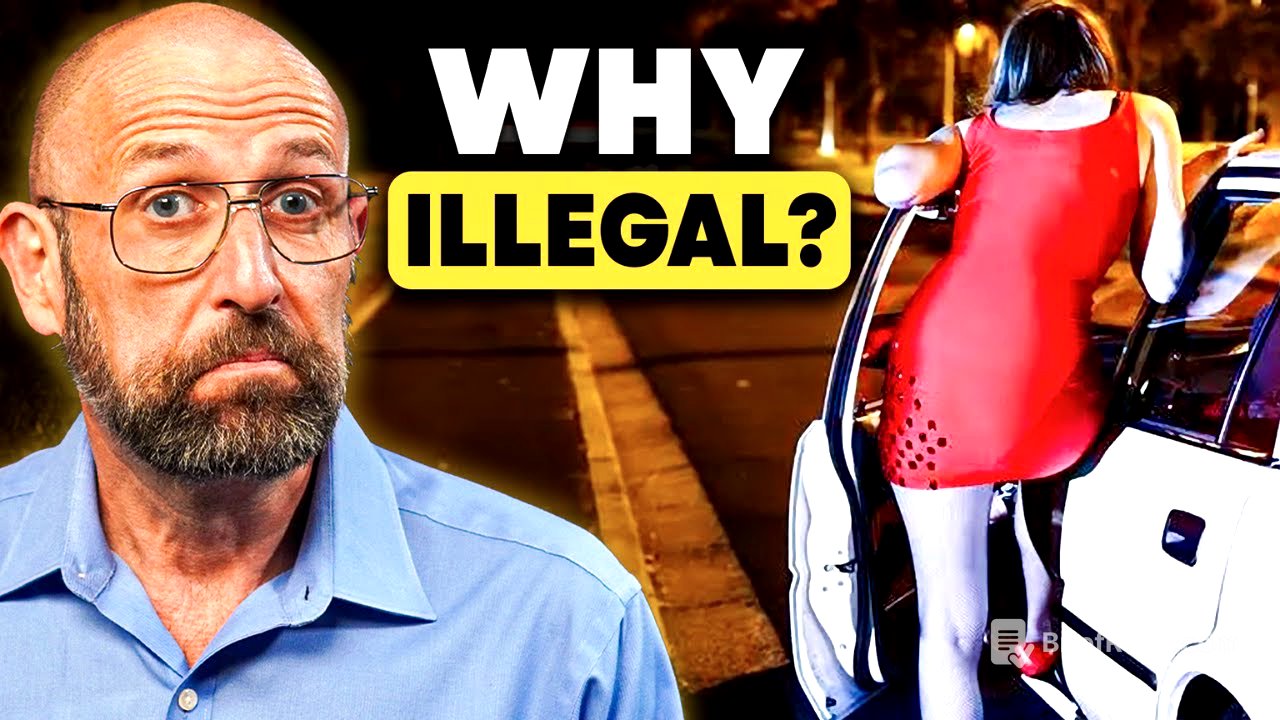TLDR;
This video explores the historical context and reasons behind the criminalisation of prostitution, contrasting its past acceptance with its current illegality in most parts of the world. It examines common justifications for its prohibition, such as protecting women from exploitation and public health concerns, before arguing that these explanations are insufficient. The video suggests that the desire to strengthen the nuclear family unit and the significant influence of women's groups in shaping policy are critical factors in maintaining the widespread criminalisation of prostitution.
- Prostitution was historically legal and sometimes state-controlled.
- Common justifications for its illegality include protecting women, public health, and nuisance concerns.
- Strengthening the nuclear family unit is a key, often unspoken, reason for its criminalisation.
- Women's groups have played a crucial role in advocating for and enforcing anti-prostitution laws.
Introduction [0:00]
The video begins by questioning why prostitution is illegal despite being considered the world's oldest profession. It highlights the apparent inconsistencies in laws surrounding sex work, such as the legality of online sexual performances versus in-person transactions. The presenter, Ken LaCorte, introduces the topic as one that is often avoided but reveals much about societal values. The video aims to trace the history of prostitution, examine common reasons for its illegality, explore the concept of strengthening the family, and analyse the role of women in shaping prostitution laws.
Historical Context of Prostitution [1:03]
For much of history, prostitution was not only legal but also managed by governments and religious institutions. In ancient Mesopotamia, temple brothels were run by priests of the goddess Ishtar, with women performing religious sex rituals or working on temple grounds. The Greeks scaled this up, with Athens having state-owned brothels that funded public works. High-end courtesans were educated companions who paid taxes and held a recognised place in society. Rome followed a similar model, with legal and taxed prostitution being widespread. However, with the spread of Christianity, the church condemned sex outside marriage and pushed prostitution to a lower status, though it was still viewed as a necessary evil to prevent worse sins. The plague and the Protestant Reformation led to stricter morals and the criminalisation of prostitution across Europe by the 1600s, followed by worldwide crackdowns in the 19th century.
Common Justifications for Outlawing Prostitution [4:44]
The most common argument for outlawing prostitution is the protection of women from exploitation, stemming from concerns about white slavery and trafficking. Modernly, the DOJ prosecutes trafficking cases, highlighting real victims such as women in poverty and runaways. Opponents of legalisation argue that it would increase demand and allow traffickers to hide victims within the legal system. Public health concerns, such as syphilis outbreaks, have also been a rationale, leading to invasive medical examinations and detentions. The "nuisance factor" arises from visible prostitution, leading to complaints and arrests, disproportionately affecting poorer individuals. However, these reasons don't fully explain why prostitution is criminalised while other risky jobs are not, and legalisation with regulation could potentially address safety and health concerns more effectively.
Strengthening the Family Unit [6:59]
The video posits that a significant reason for the criminalisation of prostitution is the desire to strengthen the family unit. Historically, there's a strong correlation between religion and outlawing prostitution, with churches enforcing family cohesion through marriage and community around the nuclear family. Stronger families benefit society, leading to lower crime, higher income, and better education for children. Governments promote marriage through tax breaks and financial protections, and society celebrates weddings to reinforce commitment. Prostitution can undermine marriage by providing easy access to sex, potentially making men less likely to commit to relationships. The availability of prostitution shifts the bargaining power in relationships, diminishing the value of sex within marriage.
The Female Factor [11:13]
Women play a crucial role in the outlawing of prostitution, with polling data showing they are much less likely than men to support legalisation. Women often view prostitution as exploitation, a pattern that holds across various demographics. In the California gold rush, where women were scarce, prostitution boomed until civilisation, particularly women, encroached. The purity crusade of the late 1800s and early 1900s was powered by women's groups, who provided political muscle to enforce anti-vice policies. These groups organised petitions, testified at hearings, and lobbied politicians. While feminists today are divided on the issue, with some seeing prostitution as sexual slavery and others as labour, the anti-prostitution view dominates policy worldwide. Without women's influence, prostitution laws would likely be more lenient, with more legal brothels and decriminalisation.









